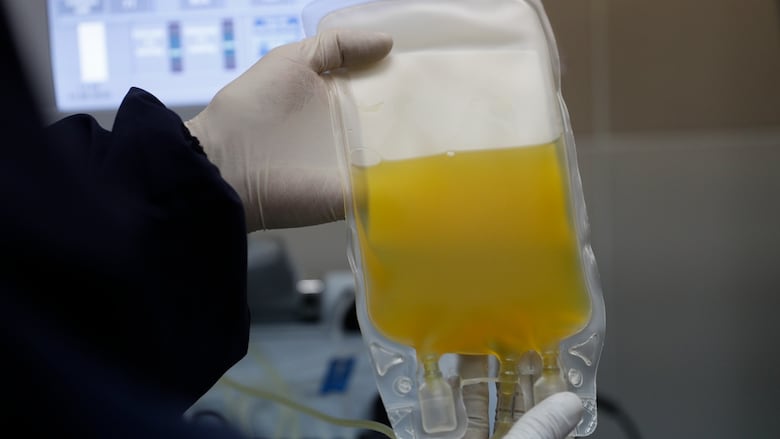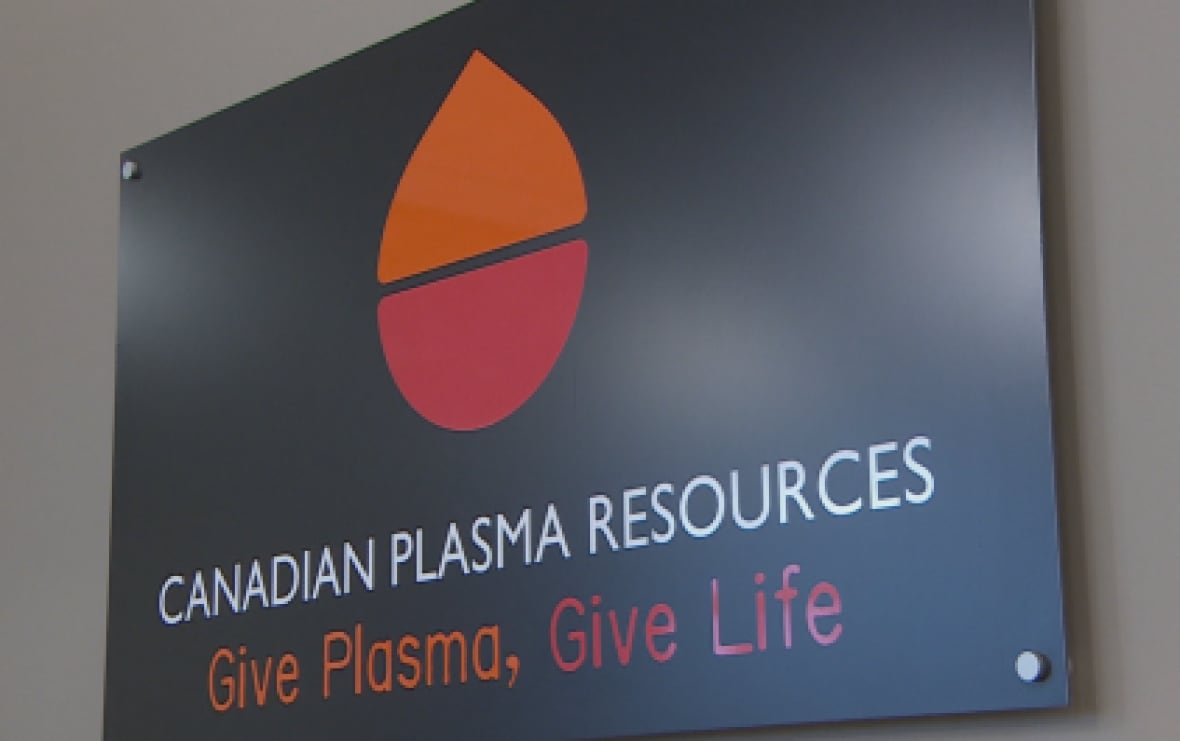Equipment failure at Winnipeg clinic caused blood plasma donor's kidney injury, lawsuit alleges
Plasma donor's suit claims clinic staff failed to recognize equipment was malfunctioning

A Winnipeg man who donated blood plasma at a plasma clinic has filed a lawsuit claiming he suffered a serious kidney injury after something went wrong with the machine used in the procedure to withdraw blood.
The plaintiff alleges the issue happened at the Grifols plasma collection facility, operated by the Ontario-based Canadian Plasma Resources, on Taylor Avenue in Winnipeg. It gives members of the public an honorarium payment for donating blood plasma, according to his lawsuit, filed July 9 with Manitoba Court of King's Bench.
On July 15, 2023, the now 43-year-old donor went to the clinic for what the lawsuit describes as a routine plasma donation through a procedure called plasmapheresis, which involves blood passing through medical equipment to separate the plasma from the red blood cells. The red blood cells are then returned to the donor, along with replacement fluids.
The procedure took about 90 minutes, and the donor left the Grifols facility around 10:45 a.m., the lawsuit says.
Around noon, he began to feel ill and experienced symptoms such as blood in his urine and flu-like symptoms, it says.
He called Canadian Plasma Resources to ask if the symptoms were anything he should be concerned about, but was told they were unaware of any issue that would cause them, his lawsuit says. He was advised to drink fluids and seek medical attention if the symptoms worsened.
By shortly after 1 p.m., the donor began having significant abdominal pain, which continued to intensify, his lawsuit says.
He was taken by ambulance to St. Boniface Hospital, where medical tests were done, including blood work, an ultrasound, a CT scan and urinalysis, to determine the source of his symptoms, the court document says.

At the hospital, the donor got an email from Canadian Plasma Resources informing him that a "machine error" caused some red blood cells removed during the procedure to be "broken" and erroneously returned into his body along with the plasma, the claim says.
It says he was advised the error may cause him to experience symptoms such as "blood in the urine, lower flank pain, shortness of breath, fever, weakness, confusion, or yellowing of the skin."
Acute kidney injury: lawsuit
The medical testing determined the donor had suffered an acute kidney injury as a result of the error, the claim alleges.
He is suing Canadian Plasma Resources, which operates as Grifols, as well as three Grifols employees identified as health-care professionals.
The allegations have not been tested in court, and the defendants have not filed statements of defence.
The lawsuit says the man continued to experience fatigue and low energy that made him unable to return to work for about a month, after which he went back to work gradually.
He continued suffering fatigue and low energy for about six months, the claim says.
It also alleges he has suffered "non-reversible and permanent injuries" from the acute kidney injury, which may result in chronic kidney disease in his lifetime.
The lawsuit seeks damages for pain, suffering, loss of enjoyment of life and lost income, among other damages.
It alleges the employees at Grifols working at the time of the machine error failed to ensure the medical equipment was working safely and properly, and failed to recognize the equipment was malfunctioning.
The employees also failed to advise the donor in a timely way that there was an error during his procedure and that he might experience complications, the claim alleges.
CBC reached out to the plaintiff and his lawyer, as well as the defendants Grifols and Canadian Plasma Resources, but did not receive comment on the lawsuit before deadline.
Grifols' website says plasma, the straw-coloured liquid portion of blood in which blood cells are suspended, is "used to manufacture life-saving and life-changing therapies."
It says tens of thousands of Canadians benefit from plasma therapies used to treat a range of medical issues, such as immune deficiencies, respiratory disorders, and surgical bleeding, among others.

